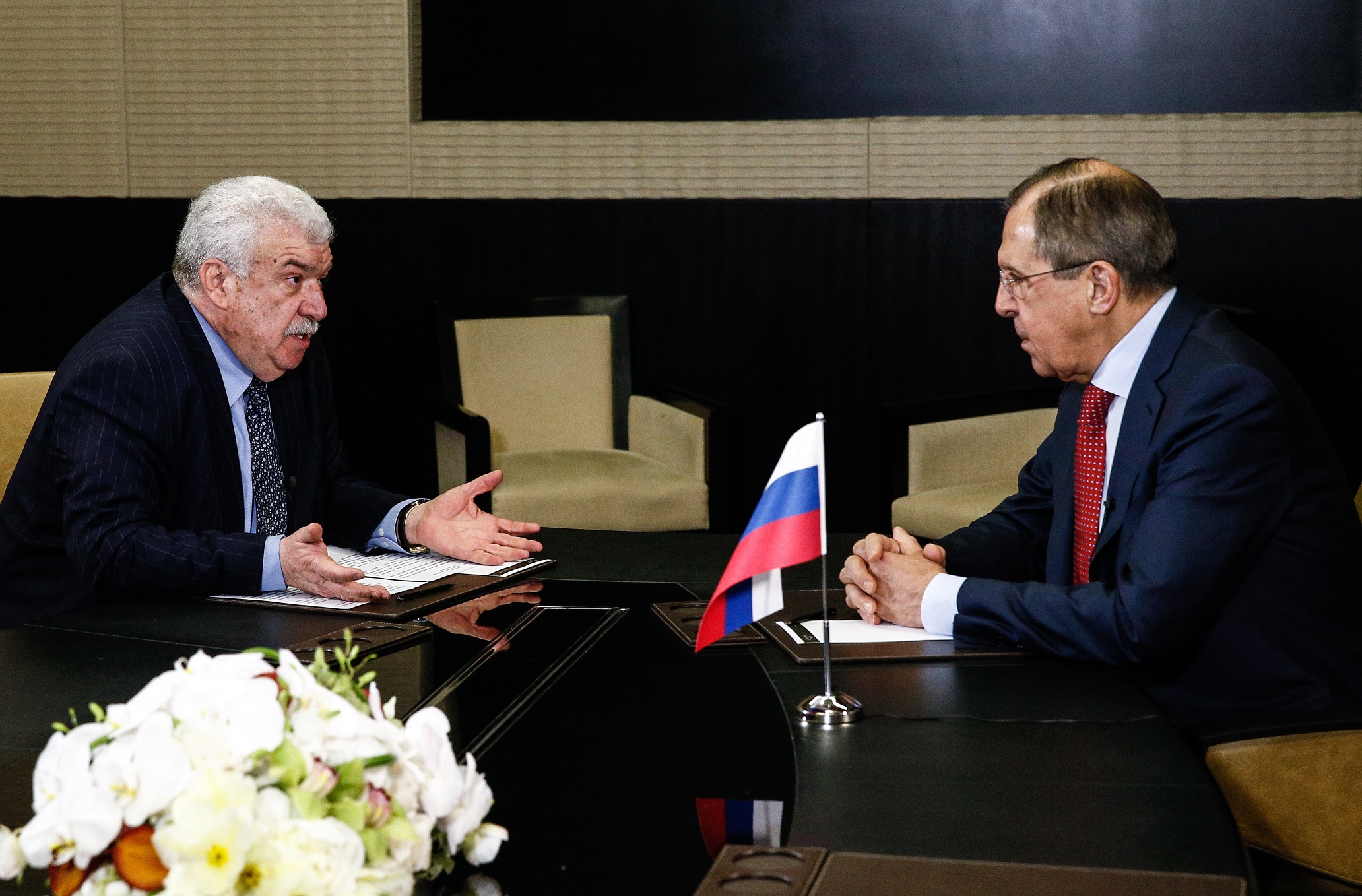ID :
403065
Thu, 04/07/2016 - 16:34
Auther :
Shortlink :
https://oananews.org//node/403065
The shortlink copeid
Loss of CIS free trade area would be detrimental to participating states - FM Lavrov

BAKU, April 7. /TASS/. The reform of the Commonwealth of Independent States (CIS) should proceed in a way to avoid ‘throwing the baby out with the bathwater,’ Russian Foreign Minister Sergey Lavrov said in an exclusive interview with TASS First General Director Mikhail Gusman on Thursday.
According to Lavrov, no forms of cooperation can be "rigid."
"Any organization, if it is capable to act and if it works actively, is a living organism, which understands what specifically has to be done at this stage for more effective activity," the Russian foreign minister said.
"This fully refers to the CIS. We don’t perceive the reform as some sheet of paper, on which it will be written down that it is necessary to create a new body and abolish the old body. This is much more refined fine-tuning," the Russian foreign minister said.
"It is true that there are a lot of structures in the post-Soviet space. The Eurasian Economic Union (EAEU) has come into existence and the CSTO [the Collective Security Treaty Organization] acts very actively," Lavrov said.
"Many of our colleagues say: is it worth duplicating economic cooperation within the EAEU and the CIS and why should security issues be discussed within the CIS when we have the CSTO? But the point is that not all the CIS countries are included in the CSTO and the EAEU," the Russian foreign minister said.
"This also refers to Azerbaijan, which is not included either in the EAEU or the CSTO, although I hope that this situation may change," he added.
"But nevertheless, several post-Soviet countries are not members of advanced integration associations in the sphere of the economy and in the sphere of security at present," the Russian foreign minister said.
"But the CIS has a free trade zone that includes nine countries and not five as in the case with the EAEU and it would be wrong to lose it," Lavrov said.
"This would damage the interests of the countries that are members of this free trade area, including Russia," the Russian foreign minister said.
There are structures in the CIS, which are focused on the joint struggle against common threats, in particular, the Council of Border Troops Commanders, Lavrov said.
"If we take formal logic, then all the security issues need to be concentrated within the CSTO while such structures as CIS interior ministers, border guards - they deal with very specific matters," the foreign minister said.
"It is not the point that this is some artificial structure; no, it is not. The carjacking of motor vehicles that have to be searched all across the territory of the former Soviet Union, drug trafficking and simply the migration of persons who are on the wanted list - all these are very substantive issues. Few know about them because this is everyday work of these people from the relevant ministries. But this is an important component of the normal functioning of all our states," Lavrov said.
"That is why, of course, we’ll be looking both at the staffing tables of the CIS Secretariat and the structure of CIS bodies," the Russian foreign minister said.
"Perhaps, some bodies can be convened less frequently or can be united with some other bodies," Lavrov said.
‘But this work should be built on the principle: don’t throw the baby out with the bathwater," he added.
‘I hope that we’ll be guided precisely by this principle, including when these issues are considered in Moscow at a session of the CIS Council of Foreign Ministers," Lavrov said.
Read more





